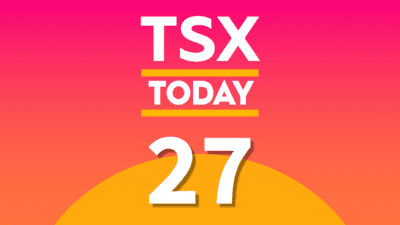Many writers — including me — have outlined a strategy retirees can use today to pay zero taxes during retirement.
The method goes a little something like this: you and your spouse each stuff your cash into Canada’s best dividend-paying stocks. As long as you both keep your dividend income under $50,000 annually and live in the right province, you’ll won’t owe one penny of taxes on that income.
There’s just one problem: this formula doesn’t factor in other forms of retirement income.
Chances are, if both you and your spouse have the assets needed to generate that kind of income, you’re going to be on the receiving end of close to the maximum CPP payment, and perhaps you’ll even qualify for OAS as well. This income will end up being taxed, which immediately takes away the dream of paying zero taxes throughout retirement.
Now this isn’t all bad news. A strategy focusing on dividends will surely decrease your total tax bill. And paying a tiny bit in taxes is not the end of the world. But at the end of the day, there’s really only one retirement strategy you can have that will truly result in a $0 tax bill during your golden years.
Let’s take a closer look.
Embrace the TFSA
If you’re under the age of 35 today, I’d recommend a really simple retirement saving strategy. Just max out your TFSA and let the magic of compounding do its thing.
Say you and your spouse each put $5,500 into a TFSA each year for the next three decades and earn an 8% return. That alone will be enough to amass a $1.46 million nest egg. Sure, inflation will mean that amount doesn’t have the same purchasing power as it does today, but I’m confident it’ll be enough for a comfortable retirement once we factor in other forms of income like an expanded CPP program.
At that point, assuming a 4% yield on this TFSA portfolio, that would be enough for an income stream of $58,400 on an annual basis. And since it’s coming from your TFSA, it would all be tax free.
You and your spouse would also end up getting CPP and OAS benefits on top of that, but those would be your only official forms of income. This likely wouldn’t be enough for either of you to hit the basic personal exemption, meaning you’d achieve the dream of a retirement without paying a nickel of tax.
But wait. It could potentially be even better.
The government has a program for low-income seniors called Guaranteed Income Supplement. Since your only official income under this plan would be from CPP and OAS, there’s a good chance you and your spouse would qualify for at least a little additional extra support from this plan.
Finally, there’s one additional benefit to keeping your official income down in retirement. There are countless programs for seniors that use income as a basis of entry, not assets. Thousands of seniors today intentionally keep their incomes low, so they can qualify for these programs. There’s no reason you couldn’t do the same when your own retirement comes.
The bottom line
It’s certainly possible the government changes the rules in the next few decades and takes away certain TFSA loopholes. But I think such an outcome is unlikely. It’ll simply be too unpopular politically, and that’s the exact opposite of what most governments want.
Focusing on your TFSA today looks to be an excellent way to avoid taxes in the future. This decision alone will put extra cash in your pocket, not the government’s, which is exactly where it should be.








